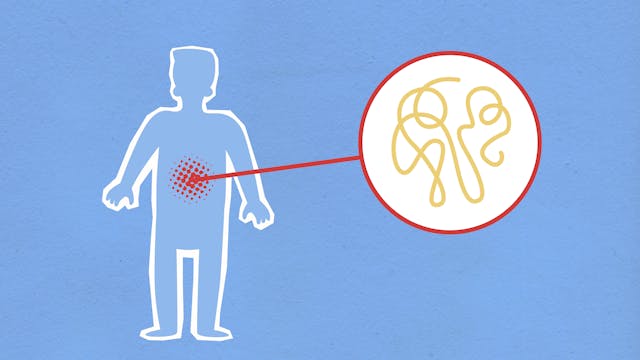Understanding Diverticulitis
Diverticulitis is a common gastrointestinal condition that involves the inflammation or infection of small pouches, known as diverticula, that develop along the walls of the intestines. This condition can cause significant discomfort and can lead to serious complications if not properly managed. As such, accurate nursing diagnosis for diverticulitis is crucial for effective patient care and treatment planning.
The Importance of Nursing Diagnosis for Diverticulitis
Nursing diagnoses provide a structured framework for identifying and treating health issues. For diverticulitis, a precise nursing diagnosis is essential as it guides the development of individualized care plans that address the specific needs of each patient. This ensures a comprehensive approach to managing the condition, promoting quicker recovery, and preventing complications.
Key Nursing diagnosis for Diverticulitis
1. Acute Pain
Definition: Acute pain related to inflammation and infection of the diverticula.
Assessment: Patients with diverticulitis often present with severe abdominal pain, typically in the lower left quadrant. Pain assessment should include intensity, duration, and factors that exacerbate or alleviate the pain.
Interventions:
- Administer prescribed pain medications.
- Encourage rest and limit physical activity to reduce pain.
- Apply warm compresses to the abdomen to help relieve discomfort.
- Educate patients on positioning techniques that can help minimize pain, such as lying in a fetal position.
2. Risk for Infection
Definition: Increased risk of infection due to the presence of diverticula and potential for perforation.
Assessment: Monitor for signs of infection, including fever, chills, elevated white blood cell count, and changes in bowel habits.
Interventions:
- Ensure strict adherence to antibiotic regimens.
- Maintain aseptic techniques during procedures and wound care.
- Educate patients on the importance of completing antibiotic courses and recognizing early signs of infection.
- Monitor vital signs and laboratory results closely for indications of infection.
3. Impaired Bowel Elimination
Definition: Difficulty in bowel elimination due to inflammation and bowel obstruction.
Assessment: Observe for changes in bowel habits, such as constipation or diarrhea, and abdominal distension.
Interventions:
- Promote a high-fiber diet when not contraindicated to facilitate bowel movements.
- Encourage adequate fluid intake to prevent dehydration and constipation.
- Administer stool softeners or laxatives as prescribed.
- Educate patients on the importance of avoiding foods that can exacerbate symptoms, such as nuts, seeds, and popcorn.

4. Imbalanced Nutrition: Less Than Body Requirements
Definition: Inadequate nutritional intake related to pain, nausea, and dietary restrictions.
Assessment: Monitor weight, dietary intake, and signs of malnutrition such as muscle wasting and fatigue.
Interventions:
- Collaborate with a dietitian to develop a nutritionally balanced meal plan.
- Provide small, frequent meals that are easy to digest.
- Offer high-calorie, high-protein supplements to meet nutritional needs.
- Educate patients on the importance of maintaining a balanced diet despite dietary restrictions.
5. Anxiety
Definition: Anxiety related to the diagnosis of diverticulitis and fear of complications.
Assessment: Assess the patient’s level of anxiety through verbal and non-verbal cues.
Interventions:
- Provide clear and concise information about the condition and treatment plan.
- Offer emotional support and reassurance to the patient and their family.
- Encourage relaxation techniques such as deep breathing exercises and meditation.
- Refer to a counselor or support group if anxiety persists.
6. Deficient Knowledge
Definition: Lack of knowledge regarding the disease process, treatment plan, and self-care.
Assessment: Evaluate the patient’s understanding of their condition and treatment.
Interventions:
- Educate patients about diverticulitis, its causes, symptoms, and potential complications.
- Provide written materials and resources for further reading.
- Teach patients how to manage symptoms at home and when to seek medical attention.
- Instruct on the importance of follow-up appointments and adherence to treatment plans.

Developing an Effective Care Plan for Diverticulitis
Creating a comprehensive care plan for diverticulitis involves a multidisciplinary approach that includes physicians, nurses, dietitians, and possibly surgeons. Here are key components to consider:
1. Pain Management ( nursing diagnosis for diverticulitis)
Pain management is a priority in the nursing diagnosis for diverticulitis. Utilize both pharmacological and non-pharmacological methods to ensure patient comfort.
2. Infection Control (nursing diagnosis for diverticulitis)
Preventing and managing infections is crucial. Educate patients on hygiene practices and the importance of adhering to prescribed antibiotics.
3. Nutritional Support
Tailor dietary recommendations to individual needs, ensuring that patients receive adequate nutrition while avoiding foods that can trigger symptoms.
4. Education and Support
Provide continuous education to patients and their families about diverticulitis, focusing on self-care, dietary modifications, and recognizing symptoms that require medical attention.
Discover DINNER RECIPES FOR DIVERTICULITIS. Click here to learn more about managing these symptoms effectively!
DINNER RECIPES FOR DIVERTICULITIS
Conclusion of nursing diagnosis for diverticulitis
Effective nursing diagnosis for diverticulitis is essential for delivering high-quality patient care. By accurately identifying and addressing the various aspects of the condition, nurses can help manage symptoms, prevent complications, and promote recovery. This comprehensive approach not only improves patient outcomes but also enhances overall patient satisfaction and quality of life.
Through targeted interventions and ongoing education, nurses play a pivotal role in the management of diverticulitis. Ensuring that patients are well-informed and supported throughout their treatment journey is fundamental to achieving the best possible health outcomes.
Nursing Diagnosis For Diverticulitis






Pingback: Herbal Remedies for Diverticulitis: Diverticulitis Herbal Treatment - Stomach Treat